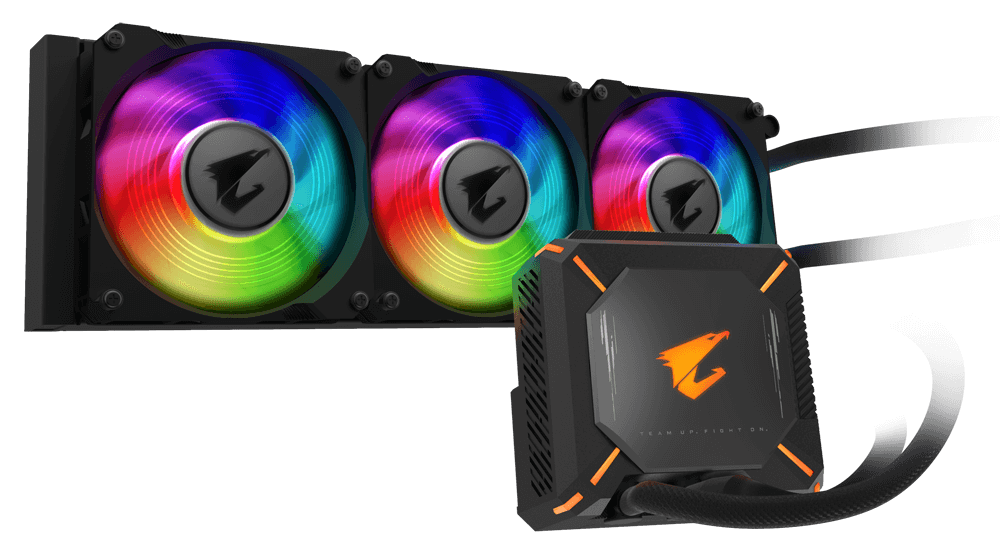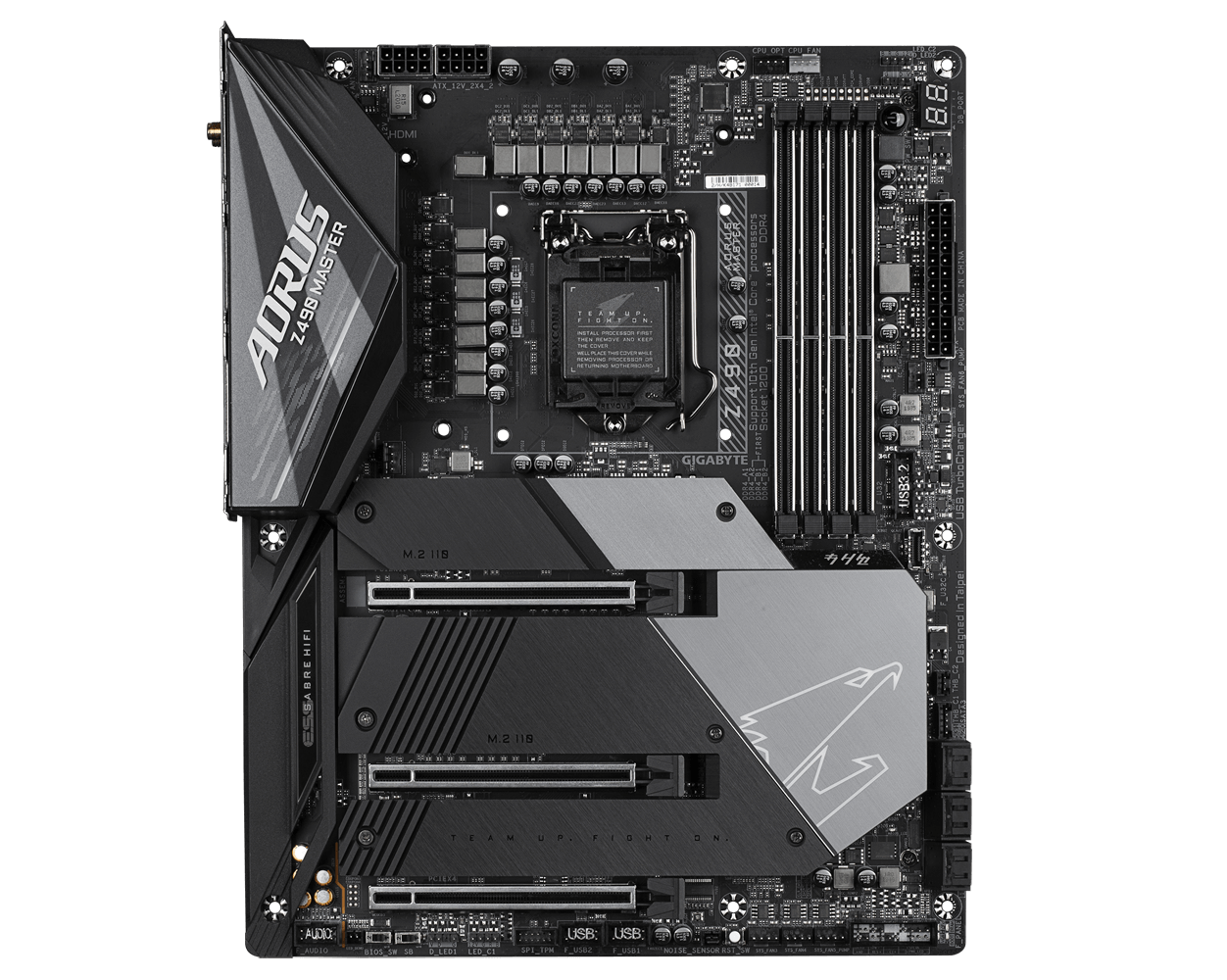Gigabyte Latest Watercooler Comes With a Z490 Motherboard
Would you like some motherboard with your AIO?
In an attempt to differentiate from everything that's out there, Gigabyte latest motherboard comes with an all-in-one watercooler that cools both the CPU and the VRM circuitry. The combination is known as the Z490 Aorus Master Waterforce, not to be mixed up with the Z490 Aorus Xtreme Waterforce, which requires a custom open loop.
The motherboard is built around the LGA1200 socket, meaning it supports the latest Intel Comet Lake-S processors, and it's clearly built for housing the infamous Core i9-10900K with its mighty 10 cores. At 14nm, that chip is capable of generating quite a bit of heat, and a good VRM system does it some favors in terms of how far it can be overclocked.

Of course, the heat this chip produces needs to be dealt with, and that's where the huge 360 mm liquid cooler comes in. With three 120 mm RGB fans, it's quite a sizable cooler and should be more than capable of dealing with the tremendous heat generated by the CPU.

The motherboard comes with a 14+1 phase VRM circuit, along with all the features one could reasonably ask for on a Z490 motherboard including lavish IO, plenty of fan headers, a high-end ESS ES9118EQ DAC, and plastic decorative shielding in ample amounts.

But the reason we say that the watercooler comes with a motherboard is because you need to be aware of the risk you're taking when indulging in a product like this one -- the motherboard itself is only good as long as the liquid cooler is, as as much as VRM circuitry does not need liquid cooling, it does need some cooling and without the liquid cooler, it won't be much use. On most systems, if the cooler fails you can simply replace the afflicted part and move on with your day, but if this all-in-one liquid cooler breaks you're going to have to find the exact same one to get your system working again, and a generic AIO won't work as a temporary fix.
Thankfully, AIO's have become increasingly reliable and regularly making it to 5-7 years of age, but personally, I wouldn't take any chances with a setup like this.
Get Tom's Hardware's best news and in-depth reviews, straight to your inbox.
Niels Broekhuijsen is a Contributing Writer for Tom's Hardware US. He reviews cases, water cooling and pc builds.
